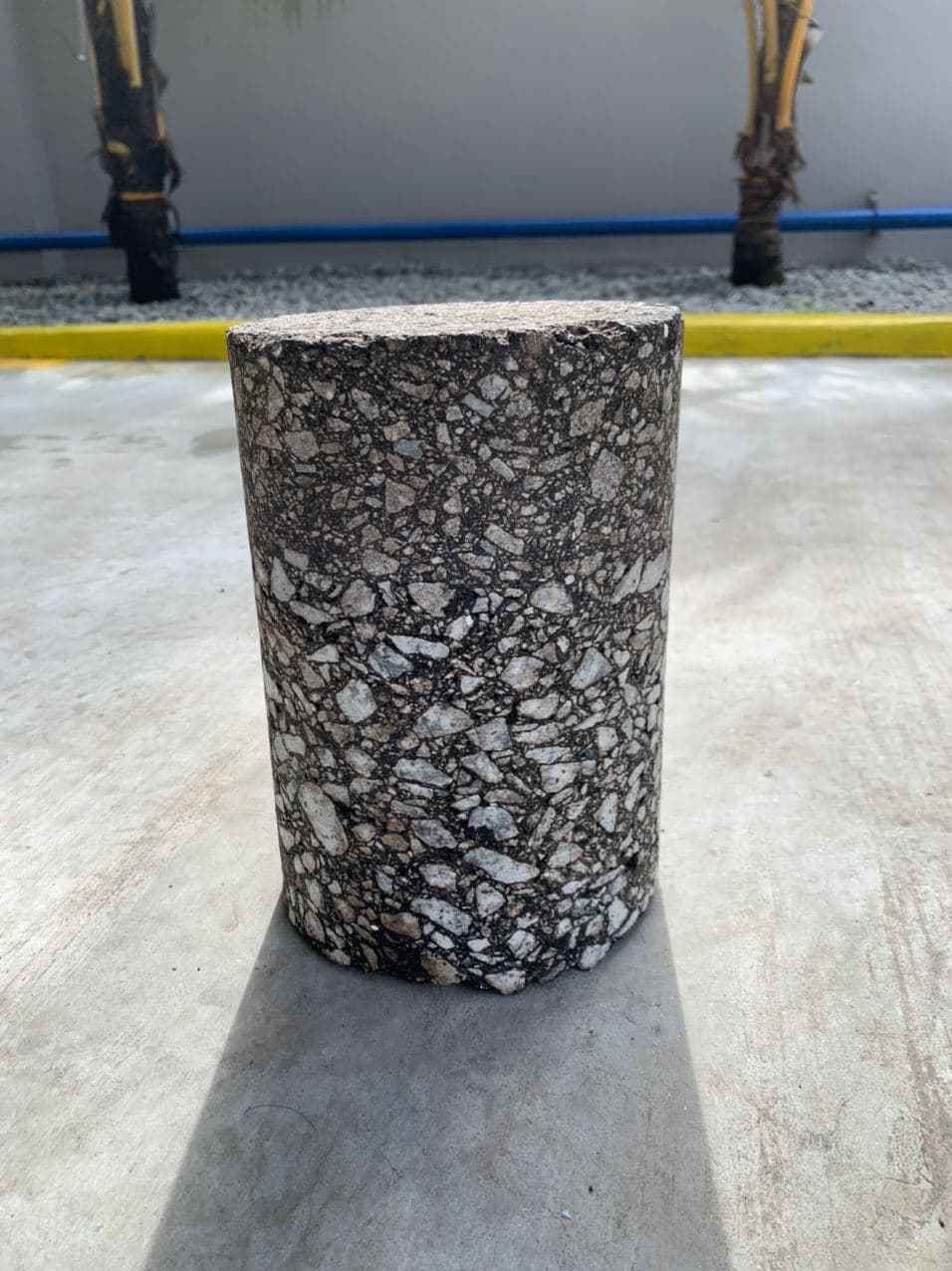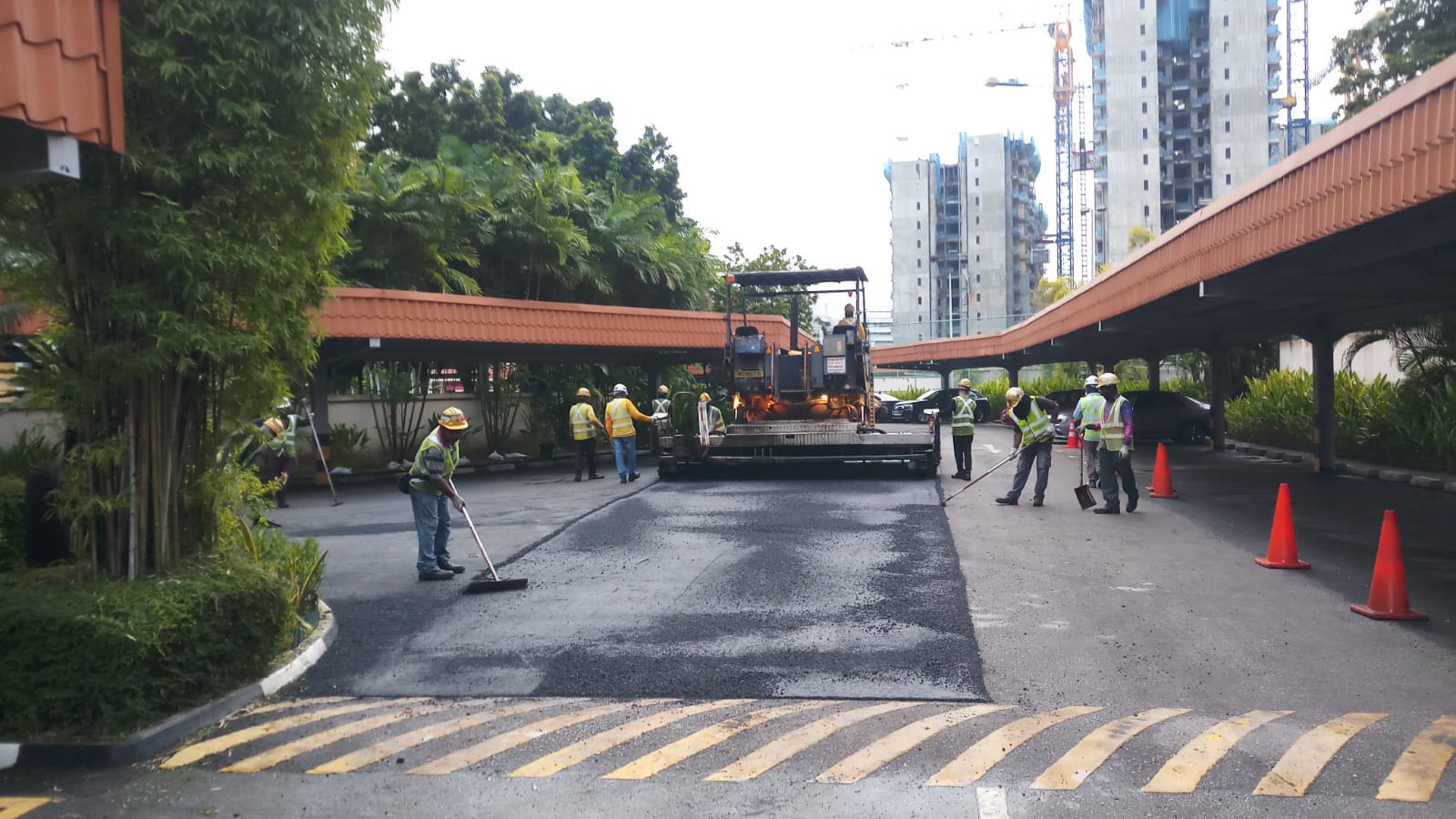Editor’s note: This interview is part of a Q&A series with winners of the ORIGIN Innovation Awards 2020. Magorium is a winner in the category Best Sustainable Solution.
Asia produces 51 percent of the entire world’s plastic. China itself accounts for 30 percent of the worldwide plastic production, and it produces 77 Kg of plastic per capita on an annual basis. The rest of Asia produces 68 Kg per capita, according to an industry report. Meanwhile, Japan produces the most plastic packaging waste after the U.S., according to a UN report.
In a TechNode Global Q&A with Oh Chu Xian, the Founder of deep-tech startup Magorium Pte Ltd., we learn how companies are building technologies toward sustainability by applying such deep tech into various industries. Magorium has produced a synthetic new material called NEWBitumen from converted plastic waste. The aim is to reduce reliance on fossil fuel-derived materials and instead recycle used materials as a more sustainable practice.

Tell us more about your company and your team.
Magorium was incorporated in Singapore in 2019 as a deep-tech start-up with a solution to the world’s plastic waste problem. By marrying the industries of waste management and construction, we have created an inter-industry technology. Our technology converts plastic waste into an innovative synthetic new material – NEWBitumen.
We aim to disrupt the waste and construction industry through innovation by replacing current materials for infrastructure purposes. In doing so, we reduce the reliance on and depletion of natural and finite crude-based resources for construction.
Our team consists of 4 core and 4 part-time members who are experts in the sustainable and construction space, prototype machinists, and lab techs.
What are the trends driving the need for more sustainable business practices?
The major trend affecting humankind alike is climate change. Various human activities have resulted in irreversible impacts on the environment, and we have a responsibility toward future generations for when they inherit it in time to come.
Another trend of more direct relevance to businesses is how sustainability is increasingly becoming a focal point for its key stakeholders. Whether in terms of nations’ policy and budget implementation, ESG work in large corporations, or the sustainable financing trend, the urgency for businesses to make the move towards sustainability is apparent.
Furthermore, social trends such as the climbing demand for eco-friendly products definitely serve as a factor for businesses’ pivot to sustainability. With the public seeking to reduce their carbon footprint through their association with green products, businesses are pressured to concede in order to maintain a certain market share. With this, there is definitely more upside for businesses to jump on the sustainability bandwagon.

What are three key challenges that innovators need to overcome in addressing regional and global sustainability concerns?
1. Financing is a major concern for innovators
Unfortunately, few innovations succeed at the first iteration and require large amounts of funds to sustain the series of trials required to push their solution through. In this sense, financing can be a real obstacle for innovators in their journey.
2. Regulatory systems are another key challenge of innovators
With sustainability being somewhat nascent in most nations, regulations in this area are bound to be either undeveloped (due to lack of precedence) or unnecessarily high. This is especially so for solutions that are vastly different from existing (less sustainable) ones because there would be no template or standard per se to follow to ensure compliance. To make matters more complex, regulations vary in terms of stringency across nations, making it even more difficult to push solutions out to a larger scale.
3. Optics is another challenge for innovators
They may face resistance from the public, competitors, governments, and other stakeholders due to concerns that their solutions can disrupt the industry too greatly. This is a real problem because sustainable innovations have the capabilities to create large waves as proven in the electric vehicle industry. Accordingly, innovators at the end of this problem have to overcome it before they can introduce their solutions to address our sustainability concerns.
Are there any sustainability challenges unique to Southeast Asia? Can these be addressed through global solutions, or will we need localized efforts?
One overarching challenge all nations face is the difficulty in balancing economic development with sustainability. However, this balancing act is particularly prevalent in developing countries in Southeast Asia. The sustainable solutions space is still relatively young, hence many of them are not cost-effective enough to be adopted and implemented on a large scale. What this really means is there is still an economic trade-off between sustainability and growth, hence sustainability may not be of top priority and instead be eschewed within Southeast Asia.
The developed nations comparatively have the resources and capacity to develop sustainable solutions such that they can be viably deployed in tandem with growth. If these resources are then shared with the developing regions, I believe that sooner rather than later, sustainability and economic growth will not only co-exist but be interdependent.

What is your company doing to contribute toward sustainability?
For the longest time, humanity’s fight against plastic waste has been dismal and a losing one. Our team seeks to commercialize the technology, which we believe to be the solution to our plastic waste problem.
We effectively recycle contaminated plastic waste into NEWBitumen to replace traditional crude-derived bitumen for road construction. In doing so, we not only create a truly circular economy but enable the building of eco-roads to power a more sustainable construction industry, spearheading the movement to generate green jobs and economic stimulation.
How do you define impact, from the perspective of sustainability?
Given our current climate, sustainability impact can no longer be defined by incremental improvements in recycling rates or gradually reduced greenhouse emissions. It is vital for impact to be defined by a truly circular economy or net carbon emissions to effect a marked improvement for climate change for the future generations
Do you think that sustainability issues should necessarily be addressed by drastic or disruptive changes, or can we do incremental solutions that will contribute to an overall improvement?
Not to be dismissive of any improvements small or big, I personally feel we are past the stage where incremental changes will be sufficient for our planet’s survival. We have ignored the signs far too long, and now we need the changes to be fast and drastic.
Some technological advancements have had a negative impact on sustainability, e.g., power consumption by certain blockchain technologies. How can we balance out the negative effects of increased consumption with the benefits of innovation?
I believe environmental accountability is the keyword. For a long time, successful commerciable technologies have been driven by factors such as profitability and addressable market size. If the environmental impact was made a mandatory metric for commercialization, society would reap the benefits of both innovation and sustainability.

